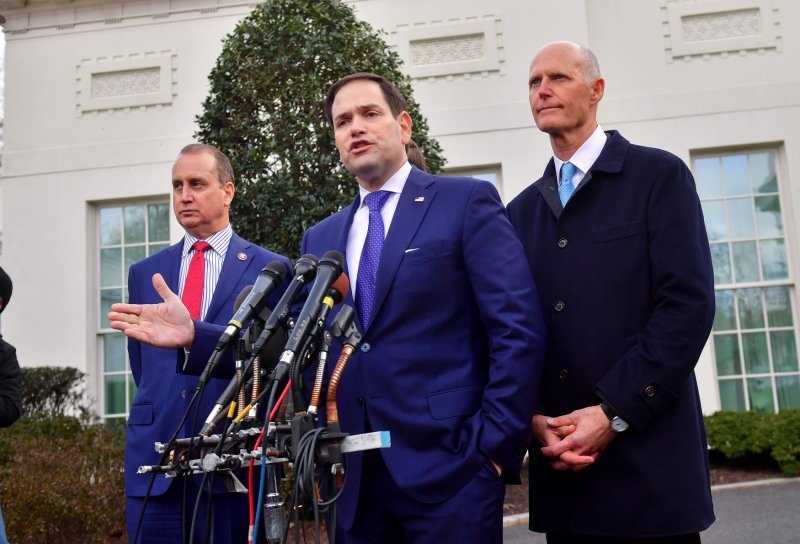Jan. 22 (UPI) -- A delegation of Florida Republicans visited the White House Tuesday to discuss tension in Venezuela over the country's leadership.
Sens. Marco Rubio and Rick Scott, Rep. Mario Diaz-Balart and Gov. Ron DeSantis were called to a meeting with President Donald Trump and Vice President Mike Pence as Venezuela prepares for a large demonstration by supporters of newly elected president of the National Assembly Juan Guaido against President Nicolas Maduro.















